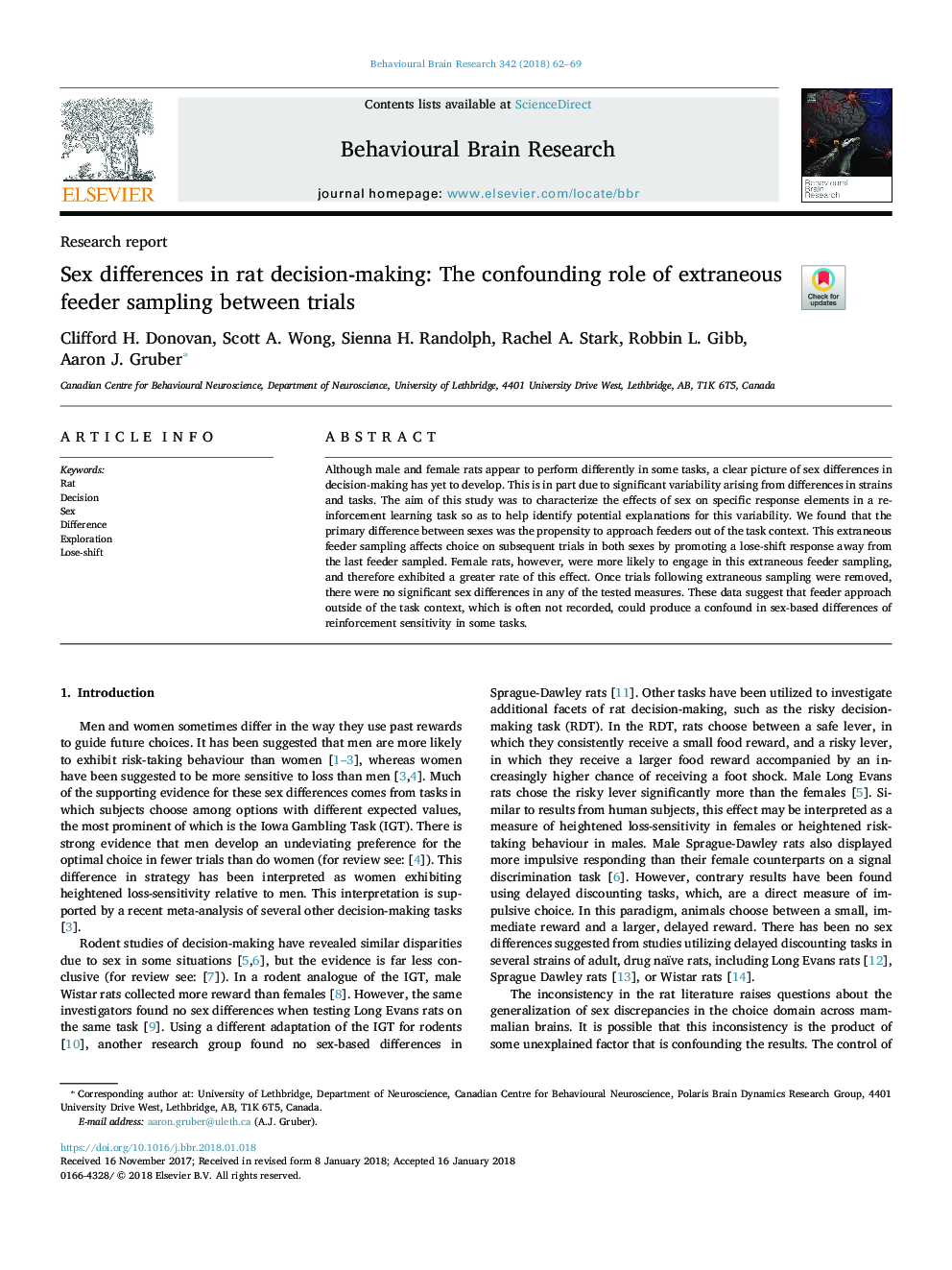| Article ID | Journal | Published Year | Pages | File Type |
|---|---|---|---|---|
| 8837893 | Behavioural Brain Research | 2018 | 8 Pages |
Abstract
Although male and female rats appear to perform differently in some tasks, a clear picture of sex differences in decision-making has yet to develop. This is in part due to significant variability arising from differences in strains and tasks. The aim of this study was to characterize the effects of sex on specific response elements in a reinforcement learning task so as to help identify potential explanations for this variability. We found that the primary difference between sexes was the propensity to approach feeders out of the task context. This extraneous feeder sampling affects choice on subsequent trials in both sexes by promoting a lose-shift response away from the last feeder sampled. Female rats, however, were more likely to engage in this extraneous feeder sampling, and therefore exhibited a greater rate of this effect. Once trials following extraneous sampling were removed, there were no significant sex differences in any of the tested measures. These data suggest that feeder approach outside of the task context, which is often not recorded, could produce a confound in sex-based differences of reinforcement sensitivity in some tasks.
Keywords
Related Topics
Life Sciences
Neuroscience
Behavioral Neuroscience
Authors
Clifford H. Donovan, Scott A. Wong, Sienna H. Randolph, Rachel A. Stark, Robbin L. Gibb, Aaron J. Gruber,
